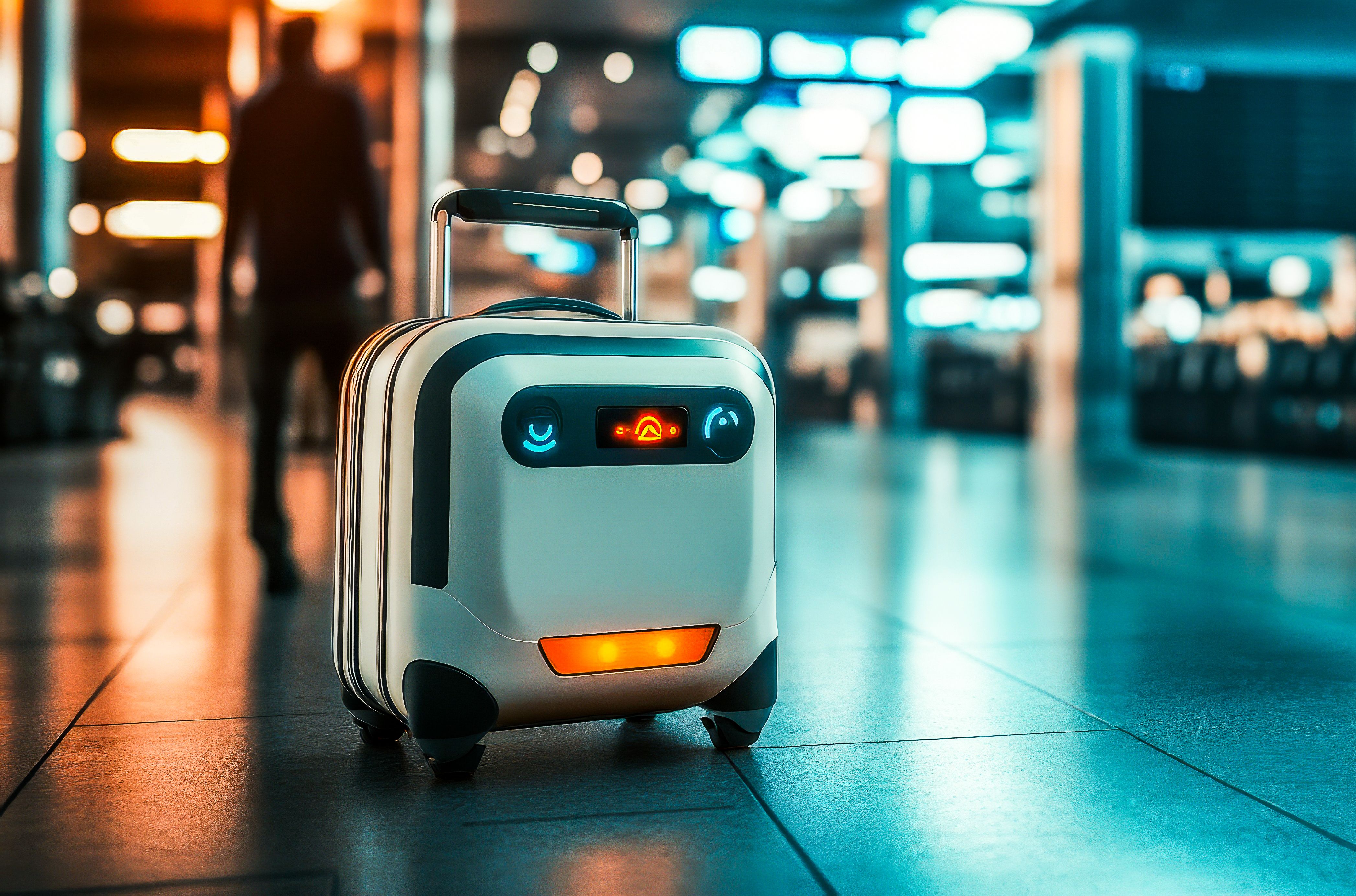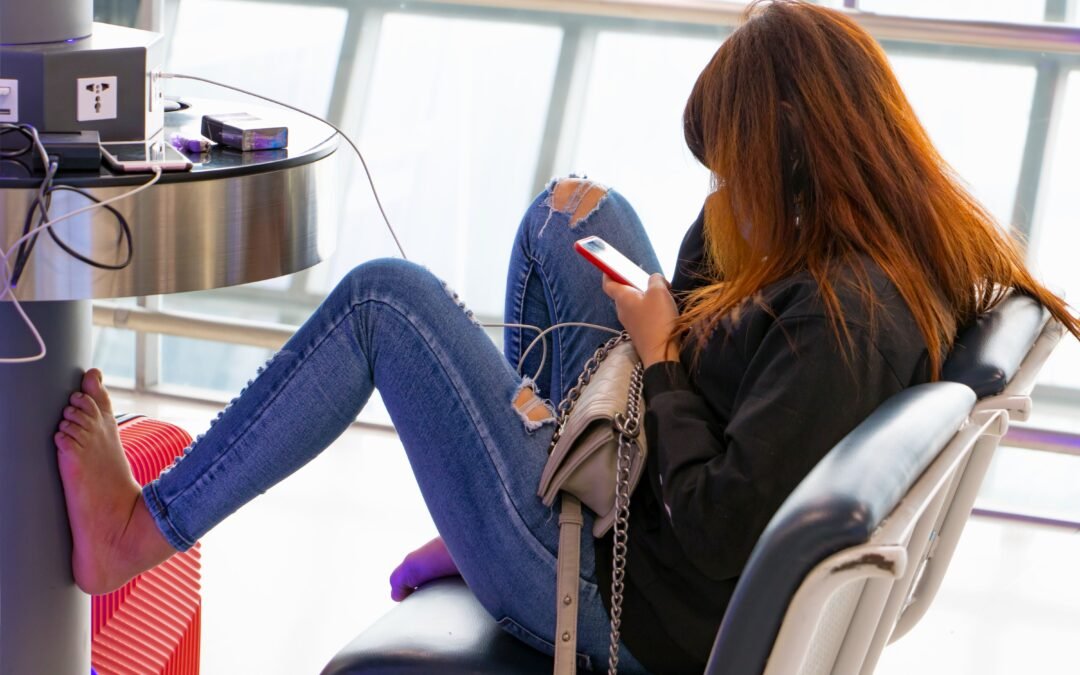Simply as the Transportation Security Administration (TSA) recently reminded passengers to pack their patience because it braces for a busy summer time season, the company has additionally been issuing stark warnings to make sure passenger security. Solely a matter of days in the past, the TSA announced sweeping restrictions on bizarre items on planes, which got here proper after it reminded passengers of a ban on a common form of ID, a transfer that induced fairly the uproar on-line. Nonetheless, this time, the company’s warning is not concerning a ban in any respect; it is to do with a seemingly invisible menace lurking at many airports throughout the nation (and the world, for that matter), one that almost all vacationers use, but few would ever be suspicious of.

Associated
NPS Just Set “Unconstitutional, Discriminatory” New Ban Rule On Visitors At Another National Park
A brand new ban in one more nationwide park is being known as unconstitutional and discriminatory, and plenty of People aren’t joyful about it.
Cybersecurity specialists and the TSA are warning vacationers to be cautious of “pretend” and hijacked airport facilities that would very properly find yourself seeing your information and private info dropped into the arms of wrongdoers. This unassuming hazard lies hidden in plain sight, and most vacationers would not even know that scammers are quietly “hijacking” their private particulars—all by a course of often known as “juice jacking.” What’s juice jacking, and the way does somebody fall sufferer to it at an airport, of all locations? It begins with two common options at most airports—the charging stations and free Wi-Fi.
TSA Warns About “Juice Jacking” By way of Pretend Airport Wi-Fi And Tampered-With USB Ports
It is secure to say that nowadays, most main airports have free Wi-Fi and USB charging stations for vacationers to connect with the web and energy their cellular units whereas ready for his or her flight. Nearly all of vacationers passing by an airport would not assume twice about charging their cellphone or pill through USB at one among these stations, nor connecting to the web to test emails, work, or meet up with family and friends on social media. Nonetheless, scammers are benefiting from these commonplace airport facilities, turning one thing as routine as a traveler charging their gadget or connecting to the web into the last word alternative for private information theft.
“Hackers can set up malware at USB ports (we have been advised that is known as ‘juice/port jacking’),” the TSA warned vacationers on Fb.
Public chargers and free Wi-Fi could seem innocent, however hackers make use of them as an open door for “juice jacking”, a course of that lets cybercriminals steal your id, unbeknownst to you. As a part of the warning, the TSA suggested vacationers to keep away from plugging of their telephones instantly right into a USB port at an airport, and supplied another suggestion for retaining units powered up whereas on the transfer:
“So, if you’re at an airport, don’t plug your cellphone instantly right into a USB port. Carry your TSA-compliant energy brick or battery pack and plug in there,” the TSA continued.
For security and peace of thoughts, it is higher to decide in your personal energy financial institution or deliver your individual charger that plugs right into a mains energy socket as a substitute of charging your gadget instantly by a public USB port. So as to add, the TSA’s warning additionally urged vacationers to keep away from public Wi-Fi networks; these may also be utilized by cybercriminals in an identical approach—to intercept private info from a consumer’s cellular gadget (once more, with out the particular person ever understanding till it is too late).
“Don’t use free public WiFi, particularly in the event you’re planning to make any on-line purchases. Don’t ever enter any delicate data whereas utilizing unsecure WiFi,” the TSA famous in its warning on Fb.
Suggestions and TSA warnings apart, although, what precisely is juice jacking, and the way does it work? Extra alarmingly, how does it permit criminals to steal your information, and what sorts of knowledge are we speaking about?
What Is Juice Jacking, And How Does It Work At Airports?
Juice jacking might happen in public locations, together with airports, wherever there is a direct connection to a consumer’s cellular gadget. There are two frequent cases the place an airport, for instance, might put an individual prone to being juice-jacked, they usually each work in several methods, that are outlined under.
Juice Jacking By way of Airport USB Charging Ports
One scenario during which juice jacking might happen is when connecting a cellular gadget to a USB port in public places: assume malls, practice stations, and, in fact, airports. At USB charging stations, hackers could have put in a tiny chip or malware that extracts the cellular consumer’s private information.
USD charging stations at an airport
Hackers can exploit the connection to provoke information transfers (ergo, stealing info from the plugged-in gadget), which occurs with out the gadget proprietor’s information.
Juice Jacking By way of Pretend Wi-Fi Networks
Nonetheless, USB charging stations aren’t the one goal hackers use to intercept individuals’s information. Free Wi-Fi, a standard characteristic at airports, can be a danger. Hackers can create “pretend” Wi-Fi sizzling spots that mimic the airport’s free community; many customers join with out realizing they’re connecting to pretend web networks hosted by hackers.
Free Wi-Fi hotspot signal at an airport
These sorts of pretend Wi-Fi hotspots, which mimic trusted Wi-FI networks, like free airport Wi-Fi, are known as honeypots and are used to interrupt into your cellular gadget. Upon profitable connection, these honeypots can intercept all the things you kind in your gadget, comparable to:
- Usernames and passwords
- Social media logins
- Emails
- Messages and texts
- Contacts
- Credit score and debit card particulars
- Banking info
Nonetheless, not everybody has the luxurious of a working web connection whereas flying, particularly throughout a layover at a global airport. Generally, free airport Wi-Fi is a crucial evil; in that case, specialists advise vacationers to make the most of a VPN, which creates a safe, encrypted tunnel between the gadget and the VPN server, and, most significantly, to by no means enter passwords or banking info whereas related to an open community.
Moreover, if you really want to make use of an airport’s public USB port charger, a safer concept is to take action whereas connecting through a power-only cable or cable-adapter, which bodily prevents information switch between your gadget and the USB port—thereby permitting for charge-only.
Likewise, the identical precautionary measures apply to charging cellular units at an airport’s public USB port: if you cannot keep away from it, a minimum of use a VPN and do not enter or open any delicate info whereas related.

Associated
This Common Type Of Baggage Is Being Banned By Many Airlines
This “new” baggage shouldn’t be the “funding” you assume it’s and is being more and more banned by airways and airport terminals to keep away from collisions
Finally, cybercrime is a quickly rising and ever-changing organized trade, and public facilities (like Wi-Fi and plug-in ports) are one of many best methods for hackers to trick unsuspecting harmless individuals into handing them the keys to their most delicate info.





Recent Comments